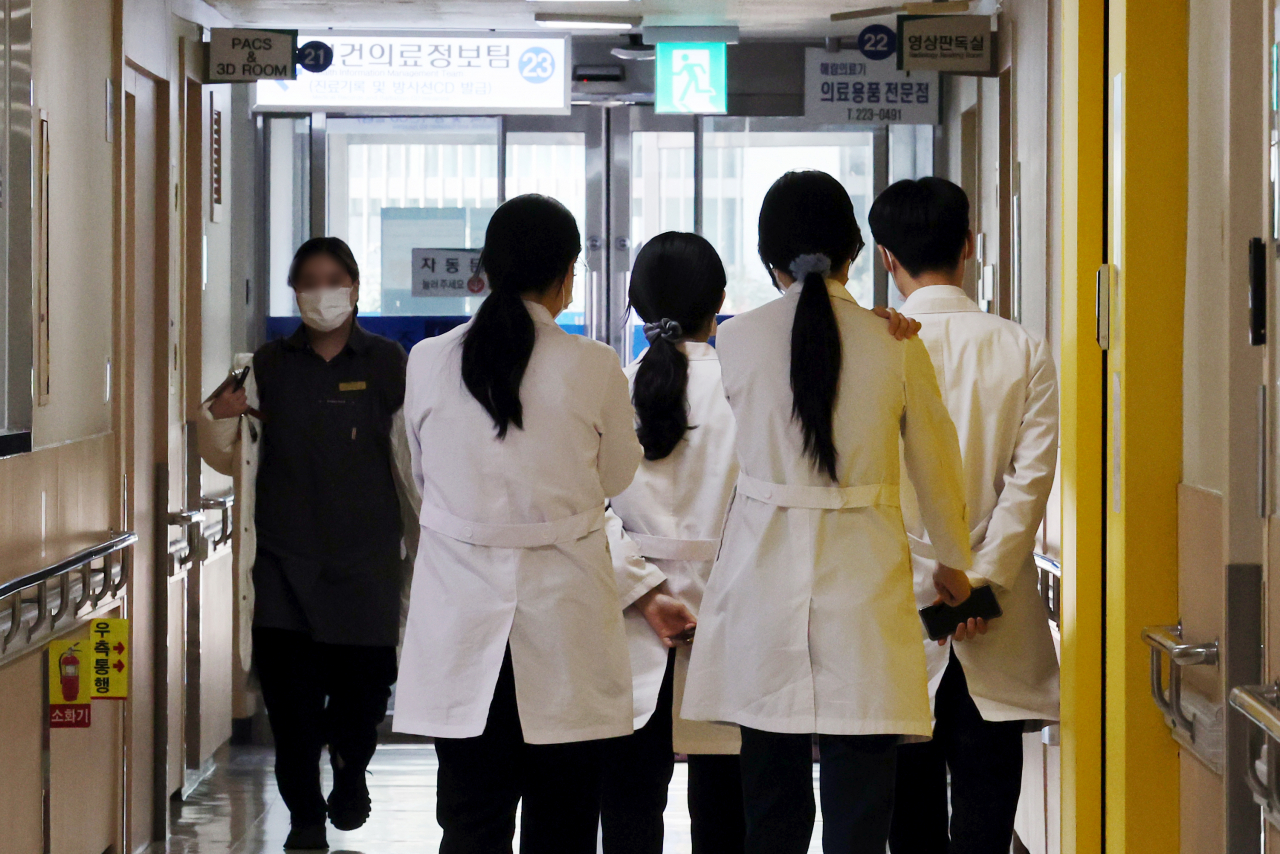Govt. to fully allow telemedicine services in case of doctors' collective action: PM
By YonhapPublished : Feb. 19, 2024 - 09:49

Prime Minister Han Duck-soo said Monday that the government will fully expand telemedicine services if doctors walk off their jobs in protest of the government's plan to increase medical school admissions.
Thousands of trainee doctors, such as residents at Seoul's five major general hospitals, were poised to submit their resignations en masse later Monday, raising concerns it would cripple hospital operations and patient care.
The envisioned collective action is part of a protest against the government's decision to add 2,000 slots to the country's medical school enrollment quota next year, a significant increase from the current 3,058 seats.
"To ensure that chronic and mild patients face no difficulties in accessing medical facilities during the period of collective action, (the government) plans to fully permit non-contact medical consultations," Han said during an emergency meeting with relevant ministers.
The country's telemedicine services have been partially allowed since 2020 in the wake of the COVID-19 pandemic. In December 2023, the government expanded the services to first-time patients in remote areas at night and on holidays.
Han also reaffirmed the government's intention to designate a total of 409 hospitals with emergency rooms to be on emergency alert mode, aiming to minimize potential disruptions in the care of emergency patients.
The five hospitals -- Asan Medical Center, Samsung Medical Center, Severance Hospital, Seoul National University Hospital and Seoul St. Mary's Hospital -- have been pivotal in providing critical medical care across the country.
The planned resignation of interns and resident doctors at the five hospitals would involve approximately 2,700 doctors, constituting about one-fifth of the country's total trainee doctors.
Han also emphasized that if doctors were to leave their hospitals or engage in collective actions resulting in a vacuum in health care, the repercussions would primarily affect the public and could potentially harm emergency patients the most.
Doctors and medical students have voiced opposition to the government's plan, contending that there are already sufficient physicians and that simply increasing the quota of medical students would lead to unnecessary medical care.
Furthermore, they argue that the plan fails to address issues, such as overburdening and the lack of incentives for doctors who specialize in essential health care services, including pediatrics, obstetrics and emergency medicine.
In contrast, the government argues that the country should begin training more new doctors to address the challenges posed by a rapidly aging society, citing examples of other major developed countries facing shortages of physicians. (Yonhap)



















![[Today’s K-pop] Treasure to publish magazine for debut anniversary](http://res.heraldm.com/phpwas/restmb_idxmake.php?idx=642&simg=/content/image/2024/07/26/20240726050551_0.jpg&u=)